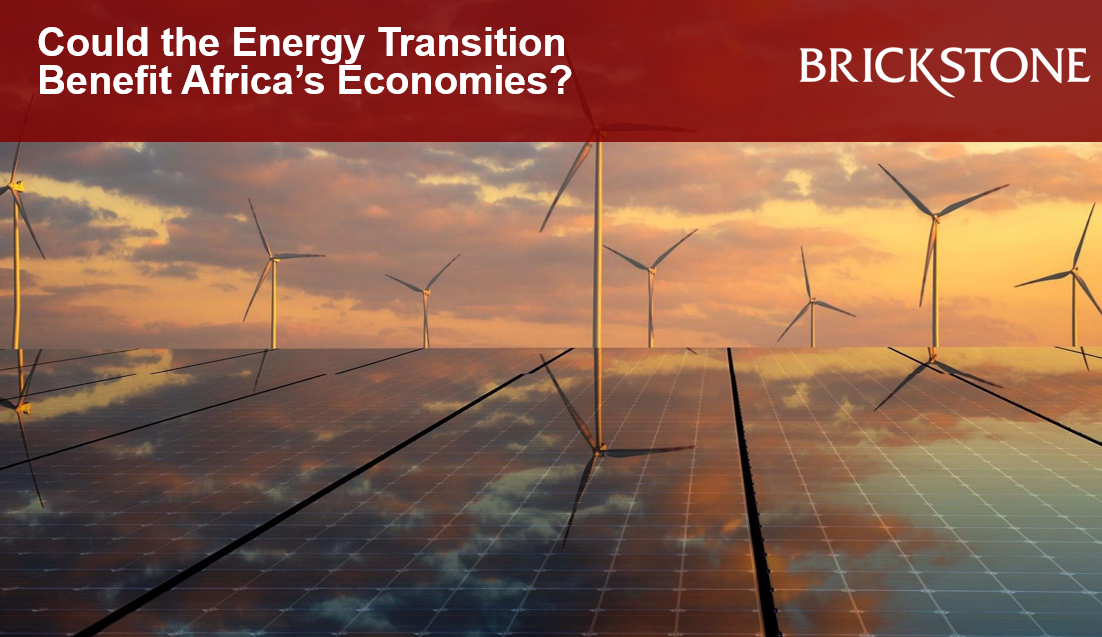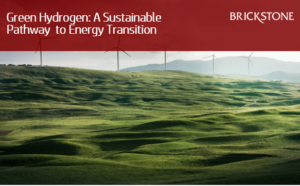Could the Energy Transition Benefit Africa’s Economies?
Climate Change and the Energy Transition
According to IRENA, Africa as the world’s youngest continent is expected to be home to nearly 2.5 billion people by 2050. Eighty percent of them will live in Sub-Saharan Africa, where less than half of all people have access to electricity today, and as little as 16% have access to clean cooking fuels and technologies. Africa is also among the most vulnerable parts of the world in the face of climate change, and is already experiencing an increase in devastating flood- and drought-related food insecurity according to the latest IPCC report on climate mitigation.
The energy transition, with its systematic shift to renewable energy needs to be understood not as a burden imposed on the world’s most vulnerable people, but as a vast opportunity to improve livelihoods across Africa in ways that transcend purely economic benefits. IRENA’s report Renewable Energy Market Analysis: Africa and its Regions, reveals a global reduction in CO2 emissions in line with the Paris agreement could have a significant, positive impact on gross domestic product (GDP), job creation, and welfare across Africa, through ways such as reduced climate impacts, improved public health, and the creation of new industries that support the Energy Transition in and outside of Africa.
This article by Brickstone reviews IRENA’s publication examining the possibility or otherwise of Africa’s economies in benefiting the Energy Transition, highlighting key insights and takeaways.
Impact of 1.5-S Pathway on Africa’s GDP
The energy transition under IRENA’s 1.5-S pathway, which measures the socio-economic outcomes under an energy scenario conform with the Paris Agreement, boosts Africa’s GDP throughout the entire outlook period up to 2050, compared with a planned policies scenario (PES). On average, GDP is 7.5% higher in the first decade, and 6.4% higher over the nearly three decades until 2050.
Renewable energy is key to the future of Africa, which is forecast to be home to 2 billion people by 2050. Meeting their needs with sustainable sources of energy will be vital to the continent’s socio-economic development.
Much of this growth stems from the role the energy transition plays to boost demand for new product ranges and services, and to promote innovation in new technologies and knowledge-based products, thereby also generating jobs. While fossil fuel industries (coal, oil and natural gas) stand to lose under the energy transition, African economies can leverage on domestic strengths, increasingly addressing the value chain of manufacturing through domestic industrialisation. Education and training opportunities help build the basis for this development.
Impact of the Energy Transition on Job Creation and Beyond
By driving the development of new industries, the energy transition can also become a major job creation opportunity for Africa.
Renewables can also play a central role in creating jobs, because investing in energy transition technologies creates up to three times as many jobs as fossil fuels per million of dollars spent.
IRENA’s analysis shows that renewables and other energy transition–related technologies have already created 1.9 million jobs across Africa, a number that will grow substantially as countries invest further in the energy transition. Under the 1.5-S pathway, economywide employment on the continent is 3.8% higher in 2030, and 3.6% higher in 2050, than under PES. Ripple effects of transition-related economic changes mean many new jobs are created across sectors and beyond energy.
This is particularly important, since the African Development Bank (AfDB) estimates that each year more than 10 million youth enter the workforce in Africa, yet only 3 million new jobs per year are currently created.
Most affected in the energy sector from job losses will undoubtedly be the fossil fuel industry and related value chains, including mining, extraction, refining, distribution/logistics and power generation with fossil fuel sources.
Under 1.5-S, the fossil fuel sector would employ 2.1 million people less in 2030 and 4.2 million less in 2050 than under PES. But this need not lead to unemployment; transition-related sectors more than offset these losses and provide many more alternative job opportunities within the energy sector than under PES.
Overall, the energy transition has the potential to create more than 9 million additional jobs between 2019 and 2030, and an additional 3 million jobs by 2050. Renewable energy is one of the most important sectors gaining in job creation potential over the outlook period.
The energy transition has the potential to boost employment in the renewable energy sector substantially in Africa, up from around 0.35 million in 2020 to over 4 million by 2030 and over 8 million by 2050 under 1.5-S. This is a 20-fold increase by 2050 from today’s values, and four times as many jobs as without the energy transition. Many of the renewable energy jobs in 1.5-S are in solar, bioenergy, wind and hydropower.
Read more here.






